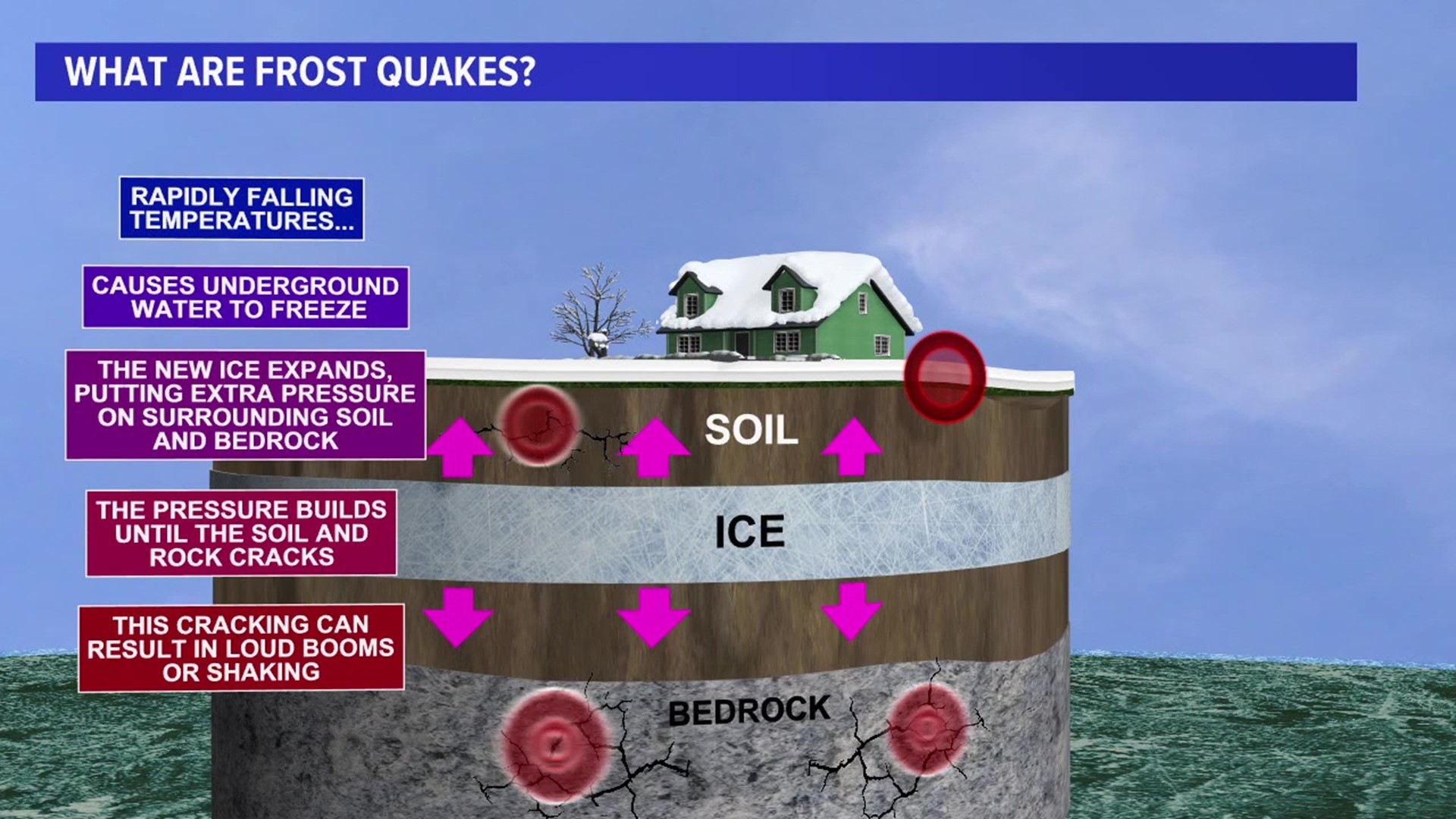PENNSYLVANIA, USA — Over the weekend, our area experienced the coldest air we have seen so far this season, with subzero temperatures early Saturday morning. But that arctic air arriving the first weekend of February came after one of the warmest Januarys on record.
On social media, there was talk of whether or not that rapid drop in temperatures led to frost quakes in northeastern Pennsylvania. Frost quakes are a rare weather phenomenon defined as deep, loud sounds made when frozen soil or rock suddenly cracks.
"What will happen is the water freezes really quickly, and when water freezes, it expands, and sometimes it expands, and pops and lead to people hearing these noises," said David Nicosia, National Weather Service, Binghamton, Meteorologist in Charge.
After a mild spell of weather like we had in January, the ground and the water below it is not completely frozen. So if it gets cold rapidly, the water can freeze quickly, causing pressure to build up and the soil to crack, creating a frost quake. Meteorologists with the National Weather Service in Binghamton say it is possible we experienced frost quakes over the weekend but that it would be much more likely to happen farther north where it's even colder.
"I don't think we get as cold enough, especially when you're talking 30 to 40 below zero up in northern New England. Now that is extreme; I think they're more frequent farther north. But the problem is, you hear it, it's underground, so where is it?" Nicosia said.
And therefore, it is more of a geological event than an atmospheric one. And if no damage is reported, it would be hard for the National Weather Service to confirm whether or not frost quakes are really what we experienced. But something that is more likely here in Pennsylvania this time of year happens in trees. Sap starts to flow around now, but a cold snap like what we had this past weekend could impact that.
"The trees could pop because all that sap going up if that freezes in the tree, it expands and pops," Nicosia explained.
But that would not be considered a frost quake, although meteorologists with the National Weather Service Say the sap popping in trees is much more likely to happen around here, especially later into February.
Check out severe weather tips on WNEP's YouTube channel.

